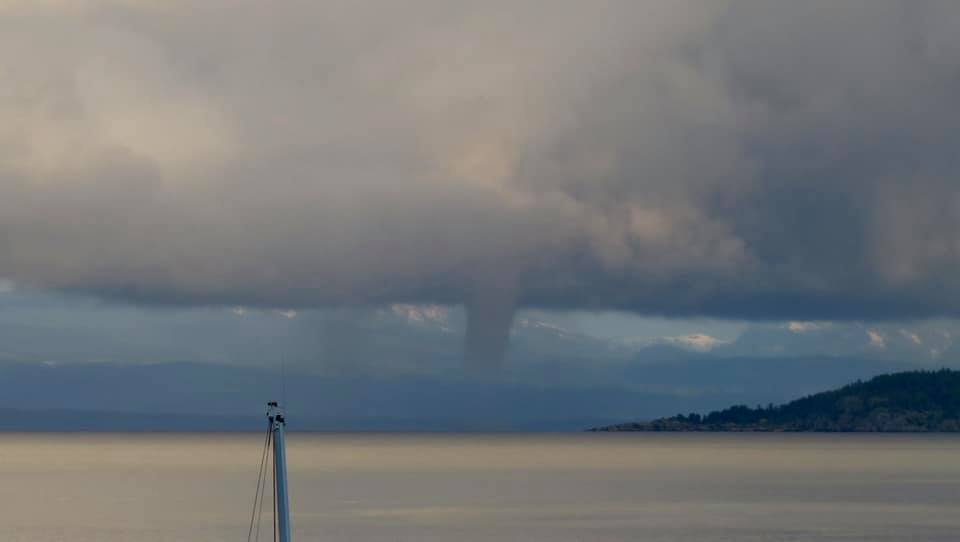Is that a tornado on the water? It’s technically called a waterspout, or funnel cloud. There have been a few spotted over the Strait of Georgia recently near Harwood Island.
But a mature waterspout is strong enough to generate a spray vortex and is considered a tornado over water, the Northern Tornado Project (NTP) notes.
“Witnesses reported multiple waterspouts along B.C.’s coast yesterday (Wednesday) morning,” the NTP says. “These occurred in the presence of isolated showers over the Strait of Georgia. [We were] able to confirm three of these as tornadoes, with all three occurring at the same time.”
The trio were given ratings of EF-0, with winds up to 137 km/h. According to the Weather Network, B.C. isn’t famous for its tornadoes. In fact, they say it’s one of Canada’s least tornado-prone provinces, averaging fewer than one per year.
Early yesterday, Julie Leon of Powell River was able to capture the waterspouts over the ocean between Powell River and Comox. She shared her photos to Facebook with the caption, “Lots of water spouts out there this morning.” Witnesses over in the Comox Valley snapped some photos too.
And today, they could be back: Environment Canada issued another ‘Waterspout Watch’ just before 7:00 this morning, claiming conditions are favourable for waterspouts to form over the northern Strait of Georgia.
“Wind speeds inside the spray ring of a waterspout are 45 knots or higher,” Environment Canada says. With this in mind, they say “vulnerable boats are at risk of damage or capsizing.”
However, the agency notes waterspouts are generally short-lived in nature, typically lasting 20 minutes or less. They sometimes appear as funnel clouds with swirling water visible near the surface.
Environment Canada also issued a wind warning for the Strait of Georgia – north of Nanaimo just after 7:00 am today. They say strong winds of 20 to 33 knots are occurring or expected to occur in this marine area.
“Please refer to the latest marine forecasts for further details and continue to monitor the situation through Canadian Coast Guard radio or Weatheradio stations,” the agency adds.





